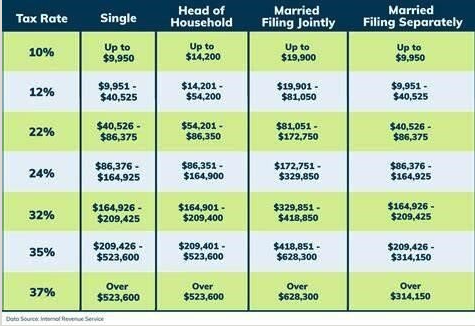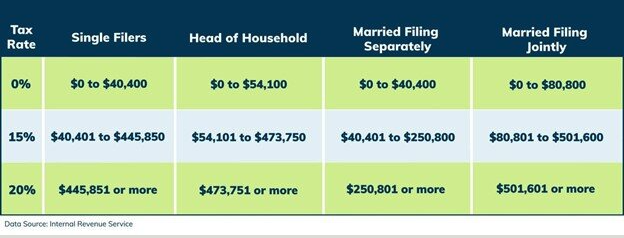Three Important Tax Facts for Optometrists Investing in Cryptocurrency

Editor’s Note: This is a guest post written by Joe Erickson, CPA who is a contributor for ODs on Finance and partner tax expert based in Washington. Joe believes the real value of tax preparation is in tax planning. With all the complexity in tax law, he believes there are tax savings which can be had through proper planning. Joe encourages all his clients to communicate with him throughout the year to ensure everything is being done to minimize year-end tax liabilities. Aaron and Dat are extremely strict about guest requirements in that they must be educational and informative to our readers. Every guest post is vetted, read and upheld to the highest standards of ODsonFinance. Your trust is the most valuable factor to us. We like having experts in their field write on our website, enjoy and give us feedback!
KEY POINTS:
-
(1) In the U.S., cryptocurrencies are treated as property for tax purposes. Just like any other property, the tax is owed when you sell, trade or dispose of your cryptocurrency.
-
(2) A taxable event is when you do any of the following: Trade cryptocurrency to a fiat currency, such as the U.S. dollar Trade one cryptocurrency for another cryptocurrency, spend cryptocurrency to purchase goods or services or earn cryptocurrency as income
-
(3) Keep detailed records of all your cryptocurrency transactions. Trying to locate this information after the fact can turn into a very difficult if not impossible task
-
(4) Similar to stock, it is always more tax-efficient to hold your cryptocurrency over 1 year period to take advantage of long-term capital gains ~15% for the typical optometrist's income.
For the past two years, as we have been in the middle of a global pandemic, many Optometrists have become interested in cryptocurrencies. This article will explain some of the basic questions you may have about cryptocurrency from a tax point of view.
What is cryptocurrency?
Cryptocurrency at its core is typically decentralized digital money that is designed to be used over the internet. Since Bitcoin’s launch in 2008, it has grown as a digital alternative to money issued by governments.
Currently the most popular cryptocurrencies by market cap are Bitcoin, Ethereum and Binance Coin. Cryptocurrency makes it possible to transfer value globally without the need of a middleman such as a bank or payment processor. The currency is transferred via a piece of technology called a blockchain. The blockchain is similar to a bank’s ledger, where each piece of currency has its own blockchain which is an ongoing, constantly re-verified record of every transaction using that currency.
No company, country or third party is in control of the blockchain, and anyone can participate in it.
Why do people invest in cryptocurrency?
There are many reasons why people have invested in cryptocurrency:
-
(1) People believe in blockchain technology
-
(2) Future Application for Blockchain technology
Blockchain technology has many other potential applications in the future, and as they become increasingly used, many investors believe cryptocurrency will benefit.
-
(3) Hedge Against Inflation
Some cryptocurrencies have become popular among investors as a hedge against inflation. For example, only 21 million Bitcoins are available and no new coins can ever be produced. Because of the limited supply - with the addition of more and more money being printed to handle unemployment during the pandemic - many people see cryptocurrencies as a hedge similar to gold or silver.
-
(4) Low Cost of Entry + Multiple Coin Choices
Others choose to invest in cryptocurrency because of the relatively low cost of entry and the multitude of coin choices to invest in. As of today, it is estimated there are 13,506 cryptocurrencies in existence with many coins offering some type of utility to the owner. With multiple options, it is important to do your due diligence before deciding to invest in any particular cryptocurrency.
Tax Fact #1 - How is cryptocurrency taxed?
In the U.S., cryptocurrencies are treated as property for tax purposes. Just like any other property, the tax is owed when you sell, trade or dispose of your cryptocurrency. For example, if you bought $5,000 worth of Bitcoin in October, and sold it one month later for $6,000, you would incur a $1,000 capital gain on the sale.
Depending on what tax bracket you fall under, you will pay a certain percentage of this tax as a capital gain. The percentage will be based on your personal tax rate and whether the gain was short term or long term.
Outside of buying, selling and trading, if cryptocurrency is earned through a job or mining activities, you are liable for income taxes on the U.S. dollar value of your cryptocurrency earnings.
Tax Fact #2 - When do you owe taxes on your cryptocurrency?
A taxable event is a situation in which you trigger realized income. As per Notice 2014-21 (irs.gov), this happens when you do any of the following:
Tax Event
(1) Trade cryptocurrency to a fiat currency, such as the U.S. dollar
(2) Trade one cryptocurrency for another cryptocurrency
(3) Spend cryptocurrency to purchase goods or services
(4) Earn cryptocurrency as income
NOT a taxable event
(1) Transfer cryptocurrency from one wallet you own to another wallet you own
(2) Buy and hold cryptocurrency
Financial Pearl
IMPORTANT: "You need to keep detailed records of all your cryptocurrency transactions. Trying to locate this information after the fact can turn into a very difficult if not impossible task"
Tax Fact #3 - How much tax do you pay on your cryptocurrency?
The amount of tax you pay on your cryptocurrency will depend on the holding period. If the cryptocurrency was earned as part of your income or held as an investment for less than one year, it will not receive any preferential tax treatment, and will be taxed depending on your personal tax rate, somewhere between 10 to 37 percent.
However, if it is held as an investment for over a year, it will be taxed at the advantageous long term rates, which is between 0 to 20 percent depending on your other sources of income. The chart below depicts the long term capital gains rates:
Summary
With the new popularity and social acceptance of a cryptocurrency as "asset class", all investors should be aware of the tax implications.
Similar to stock, it is always more tax-efficient to hold your cryptocurrency over 1 year period to take advantage of long-term capital gains ~15% for the typical optometrist's income.
While short-term trading cryptocurrency might be exciting, many optometrists might be shocked to find a hefty tax bill at the end of the year, especially if they live in a high tax state like California (35% to 43%)
Please contact a tax professional if you have any questions about how this information applies to your specific tax situation.
Want to learn how to build your own portfolio? Check out The Optometrist's Guide to Investing 101
Need Tax Help? Check out Recommended Tax Experts





Facebook Comments